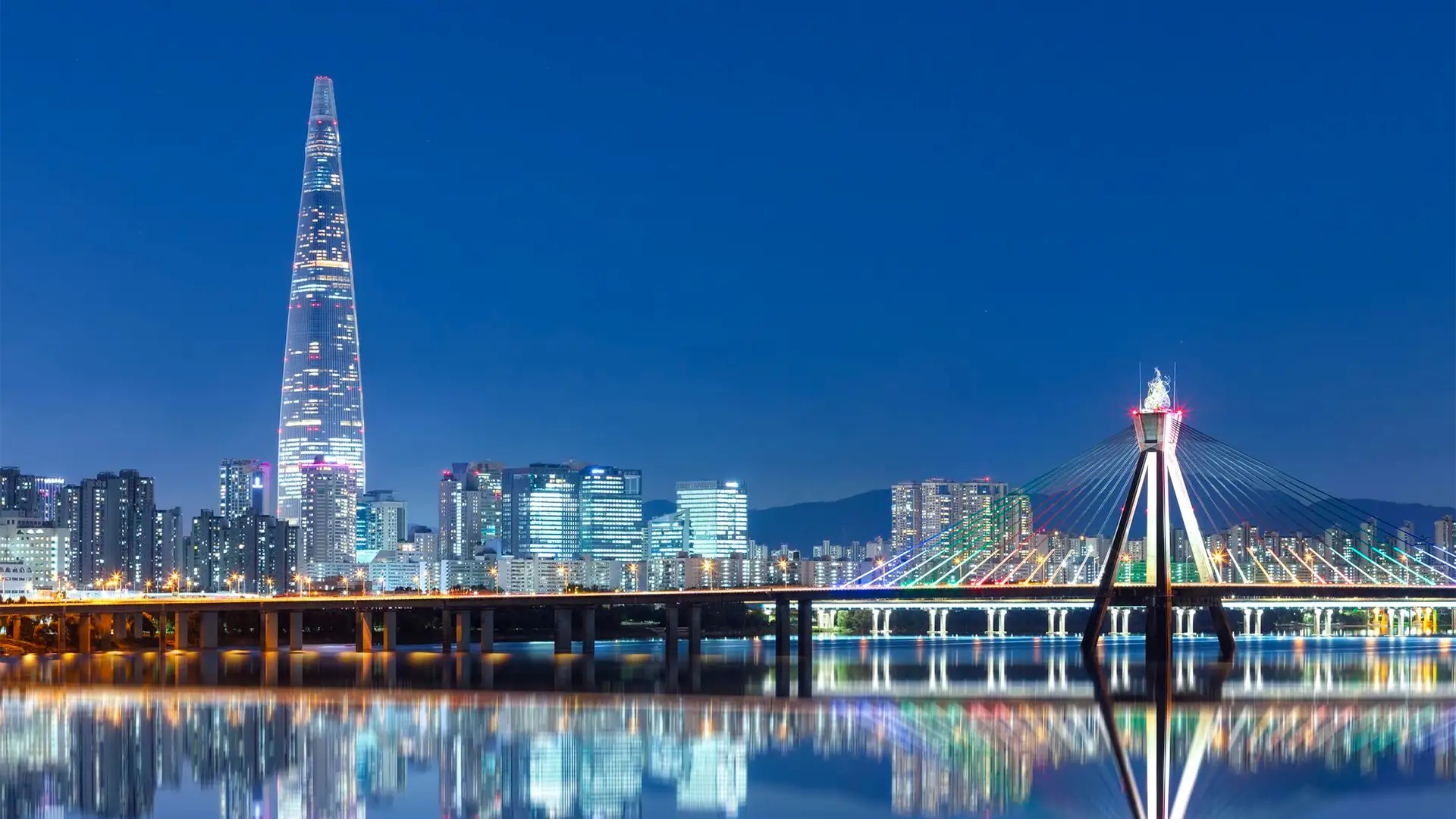Seoul, South Korea’s vibrant capital and largest metropolis, stands as a pivotal global business and financial hub. Its remarkable economic surge, often hailed as the “Miracle on the Han River,” transformed the city. Indeed, from the devastation of the Korean War, Seoul has risen to become one of the world’s leading metropolitan economies. Its metropolitan GDP is estimated to be around US850−900 billion in 2024/2025, consistently ranking among the top global cities. Furthermore, South Korea′s GDP per capita (PPP) is projected to reach approximately US50,000 in 2025, comparable to leading European economies.
Seoul is a world-renowned technology hub. Areas like Gangnam, Digital Media City (DMC), and Pangyo Techno Valley (just south of Seoul) form its core. The city boasts a significant number of Fortune Global 500 multinationals, including global titans like Samsung, LG, Hyundai-Kia, and SK, all headquartered within its bounds. These conglomerates actively drive innovation across diverse sectors.
A Hyper-Connected and Smart City
Seoul consistently ranks globally for technology readiness and smart city initiatives. For example, PwC’s “Cities of Opportunity” report frequently places Seoul among the top contenders. The city serves as a living laboratory for urban innovation, actively implementing smart technologies across all sectors. The Seoul Smart City Prize 2025, for instance, highlights its commitment to human-centric and tech-driven urban development, with a strong focus on AI, biotech, quantum technology, and robotics.
Connectivity is a hallmark of Seoul. Seoul Station remains the primary terminal for the KTX high-speed rail network, directly connecting the capital to major cities nationwide. Moreover, people celebrate the Seoul Subway as one of the world’s most extensive and efficient subway networks, renowned for its pervasive 4G LTE, Wi-Fi, and DMB services even within subway cars. Additionally, the AREX express train seamlessly links Seoul to Incheon International Airport (ICN). ICN consistently ranks among the world’s top airports, securing 3rd globally for international passenger numbers in 2024 and maintaining its position as a global top 3 airport in infrastructure and cargo operations.
Population Density and Economic Evolution
Seoul proper is notably dense, almost twice that of New York City and significantly higher than many major global cities. The Seoul metropolitan area’s population is projected to reach over 10 million in 2025, making it one of the densest and most vibrant urban centers globally.
The city’s industrial landscape has continually evolved. High-value industries have largely replaced traditional, labor-intensive manufacturing. These include advanced electronics, information technology, biotechnology, and the rapidly expanding K-content industry (film, music, gaming, fashion). While foundational sectors like food and beverage production, printing, and publishing remain strong, the emphasis firmly rests on innovation and high-tech.
Driving Global Business and Innovation
Beyond its tech giants, a large concentration of international companies maintain their regional headquarters in Seoul. The city’s financial sector is robust, featuring the Korea Exchange (KRX) and numerous leading financial institutions. Seoul’s startup ecosystem is booming. Indeed, in the Global Startup Ecosystem Report 2025, Seoul notably ranked 8th globally, outranking Asian hubs like Singapore and Tokyo. This climb reflects aggressive investments in biotech, AI, quantum technology, robotics, fintech, and creative industries. Significantly, South Korea’s venture capital investments grew by 9.5% year-over-year in 2024, bucking global trends.
Seoul’s commitment to fostering a dynamic business environment is evident in its initiatives to attract foreign talent and investment. The government’s ambitious plan for a 150 trillion won (approximately US$110 billion) National Growth Fund aims to support high-tech industries, with a focus on aerospace, AI, biotech, defense, and semiconductors.
The K-Wave Impact
Beyond its economic might, Seoul is the undisputed heart of the “Korean Wave” or “Hallyu.” The global success of K-Pop, K-Dramas, and Korean cinema has had a profound economic impact, driving tourism, cultural exports, and brand recognition worldwide. This creative industry further solidifies Seoul’s role as a global trendsetter and cultural innovator.
Seoul embodies the spirit of resilience and relentless innovation. It constantly reinvents itself, driving global technological advancements, shaping cultural trends, and setting new benchmarks for urban living.


